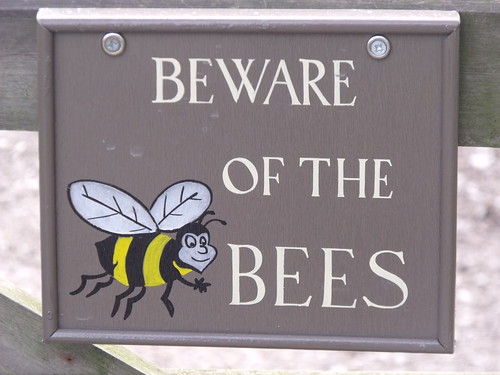Tomorrow are the semi-final and final rounds of the 2013 Scripps National Spelling Bee. Talented orthographers aged 8 to 14 will be tasked with spelling difficult words such as last year’s winner, guetapens, or the winner from 2012, cymotrichous.
However, many of us still have difficulty spelling even the simplest of words. We asked our followers on Twitter and fellow Reverbers what kinds of words still trip them up.
Double consonants were a common culprit. Words such as accommodate, disappointed, embarrassed, occurrence, unnecessary, immediately, and of course misspell, sent many folks to Google and dictionaries (such as [cough] Wordnik [cough]). Mischievous received a couple of votes with that pesky alternate pronunciation that adds an extra i in the penultimate syllable.
French-derived words, often with silent vowels, were the bane of many an existence, including bourgeois and bourgeoisie, bureau, bureaucracy, and bureaucrat, guarantee, nausea and nauseous, restaurant and restaurateur. “‘Restaurant’ I’m fine with,” said Drew Mackie, “but ‘restaurateur’ I bungle. Dumb, vanishing ‘n.'” We agree.
For others, silent consonants were the tricksters in words like Buddhist, lasagna, rhythm, silhouette, and surprise. “Is there an r or isn’t there?!!!!!!!” asked @miarose. There is, as Jim Nabors knows.
Sometimes it’s our fingers that do the misspellings. One Reverb developer noted that he often spells password as passwd “because of too much time with Apache,” while another used to constantly misspell myself as mysql. One New England native confessed that he often writes main as maine, while another Reverber’s fingers type reasearch when she very well knows it’s research.
Other words are simply too much alike. Who hasn’t spelled weather as wheather (“a bad spell of weather,” as a Reverber put it), or whether as wether? As David Habib noted, “‘Wether‘ is a word and always passes spellcheck.”
For still others, the variant is more well-known. Several of us were astounded to learn that the correct spelling of supercede is actually supersede, and one Reverber relayed how he lost a spelling bee by spelling doughnut as donut, which we all agreed was wholly unfair.
And damn all those alike-sounding vowels! Is it anomalous or anamolous, anomaly or anamoly, anonymity or anonimity? How about definitely or definately, privilege or privelege, separate or seperate? (The first word is right for all those by the way.)
We’ve just about given up on learning how to spell these words correctly, and will leave the art of orthography to the experts.
Speaking of which, be sure to join us on Twitter on Thursday as we live-tweet the semi-final and final rounds of the Scripps Bee.
Happy (mis)spelling!
[Photo: CC BY 2.0 by Elliott Brown]

Hehe, sorry but you spelled ‘Restauranteur’ wrong!
I forgot how to grammar! Before anyone points it out, I should have said ‘wrongly’ or changed sentence arrangement completely. Herpa derp derp!
Hi Sam, thanks for your comment! The spelling of ‘restaurateur’ is definitely confusing. ‘Restauranteur’ is actually the alternative (and red squiggle line inducing) form while ‘restaurateur’ is the ‘official’ spelling. http://www.wordnik.com/words/restaurateur
I volunteer once a week as a Reading Buddy at my daughter’s school, where I spend time reading with kids who are 2 or more grade levels behind in their reading. Often these are the children of 1st generation immigrants whose language at home is Spanish.
In my attempts to teach kids the proper pronunciation of various English words, the rationale I continually find myself coming back to is: “English is just weird.”
“This word has a ‘g’ that sounds like an ‘f ‘ (tough)…and that’s because English is just weird.” Or “this word has a ‘g’ that sounds like an ‘o’ (though)…and that’s because English is just weird.” This morning, the word “engage” came up, which has the letter “g” twice, pronounced differently each time, because… you see my point.
I’m sure there are actual reasons for all these, and I were a professional educator I might know them. Whatever the reasons are, I’m not sure they would would mean more to a 4th grader than “English is just weird”, so I’m sticking with that.